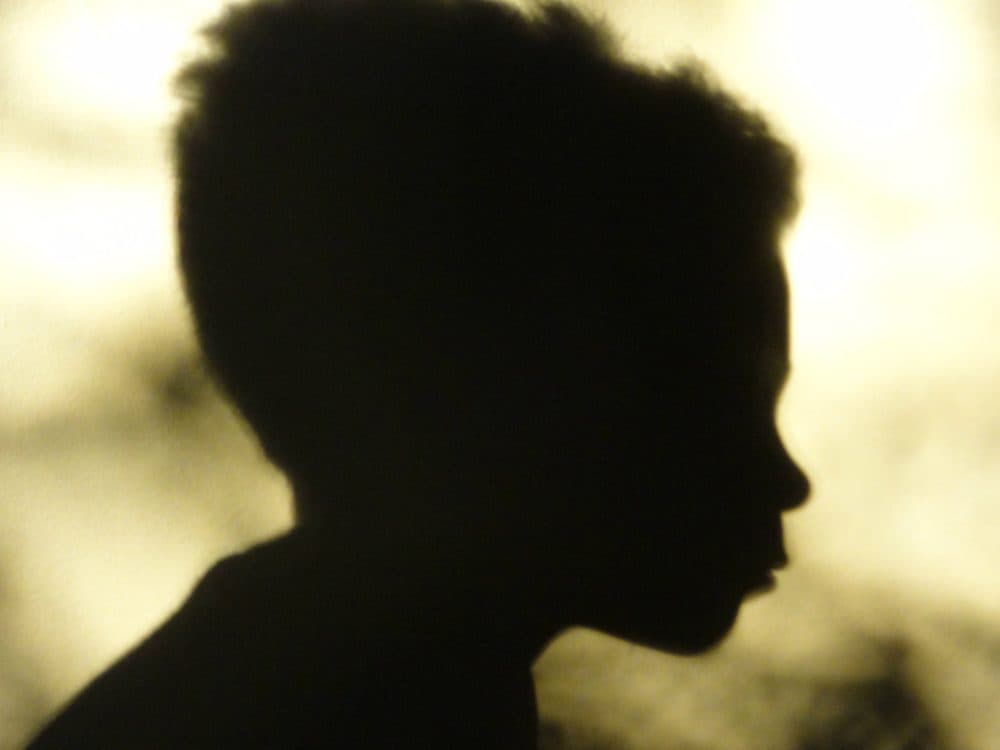Advertisement
Shadow Children: Putting An End To Re-Homing Adopted Children In Massachusetts

In her new novel, "Untethered," author Julie Lawson Timmer introduces readers to a little-known practice: the "re-homing" of an adopted child. In the novel, an adoptive family decides that it no longer knows how to care for a 10-year-old girl adopted from foster care. The family fears intervention from child welfare professionals and lacks the resources to afford proper mental health counseling for either the child or themselves. Their solution? They find another home for the girl using an internet chat room, thus sending their adoptive daughter into a murky world in which she will be passed from one family to another.
As a work of fiction, "Untethered" is compelling. The plot at its heart, unfortunately, is a reality for far too many adopted children. First brought to light by a Reuters investigation in 2013, the "unregulated custody transfers of adopted children" expose already-vulnerable youth to the possibility of being re-homed to individuals or families who may abuse them physically, sexually or psychologically. This is because re-homing takes place away from the supports, services and protections of adoption and child welfare professionals, mental health counselors and law enforcement. An adoptive family can use the internet to find an individual or a family to take their adopted child and then give the child over with nothing more than a power of attorney document. There is no background check or adoption training for the new family.
Children who are re-homed can face many unknown dangers. In the most high-profile case, an Arkansas State Representative re-homed two of his female children adopted from Haiti to a man who later sexually assaulted one of the girls, who was 6-years-old at the time. Children identified in the Reuters report have gone missing. Others have lived to tell of heartbreaking abuse.
The Massachusetts State Legislature, which wraps up formal sessions on July 31, has the opportunity to close the legal loopholes that make re-homing possible in our state. Senate Bill 2050: An Act relative to the re-homing of children, currently awaiting action by the House Ways and Means Committee, would make adoptions safer and more likely to succeed by ensuring that adoptive families receive the services they need, including training for adoption applicants who wish to adopt internationally. If passed, the bill would require adoptive parents to notify their placement agency or the Department of Children and Families (DCF) if the parent or family can no longer care for the child. It would also create penalties for those who advertise a child online, those who accept or solicit payment for placing a child, those who take a child in through re-homing, and those who cause a child to be re-homed.
It is impossible to know how many children are re-homed in Massachusetts, because the practice is neither visible nor tracked by any state or federal agency, but in a September 2015 report, the U.S. Government Accountability Office (GAO) identified 23 instances of attempted unregulated custody transfers across the U.S. over a 15-month period. As part of its investigative reporting, Reuters tracked re-homing practices over five years and found that 261 children, including some from Massachusetts, could be identified as having been re-homed. Seventy percent of those children had come to the United States as international adoptees.
Thanks to the Reuters and GAO reports, we have a better understanding of why adoptions may disrupt or dissolve. Although adoptive families are required to undergo training — 10 hours for international adoptions, and 27 hours for adoption from foster care — families may still be unprepared for the challenges inherent in raising a child who may have endured long-term institutionalization, abuse or trauma in his or her young life. Often, adoption officials are not required to disclose the past histories of children before they are brought into a new family’s care, so local adoption agencies may not have all of the relevant information to pass on to adoptive families. According to the GAO, between 2008 and 2009, 42 percent of children in foster care aged 18 months to 17 years were at risk for emotional or behavioral problems. In 2014, 23 percent of families seeking to dissolve an adoption cited a safety threat to their family from the adopted child as the reason.
Many families find themselves unable to access or afford the type of specialized mental health care that would address the specific concerns of adoptive parents and adopted children. Finding and paying for intensive services for a severely traumatized child may prove even more difficult. Further complicating matters is the fear that families who reach out to child welfare professionals to get help with their adoptions will subject their entire families to scrutiny and, perhaps, interventions from those same professionals.
Because of the potential dangers posed to our children, Massachusetts should not wait for a national solution for the problem of re-homing. We have led the way on equal marriage, universal healthcare and public education. We have a bill that, if passed, would prevent children adopted in Massachusetts from facing the horrors of re-homing while also giving adoptive families the tools they need to thrive.
